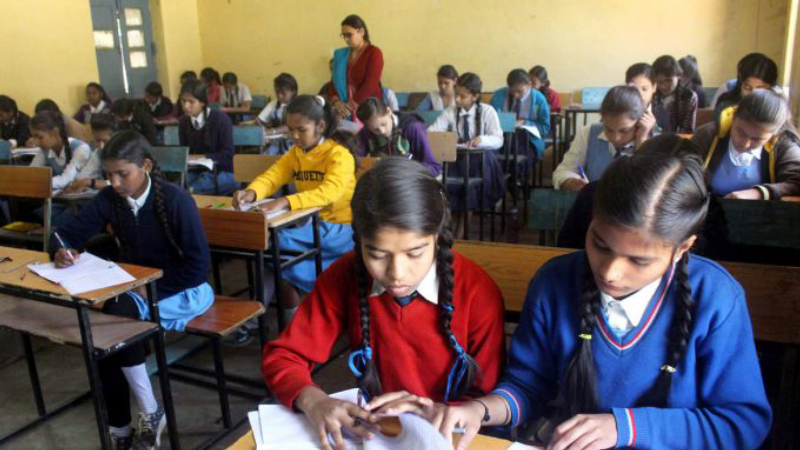Trending Now
Friday, Nov, 2024
Home / UK Universities Depend on International Students
UK Universities Depend on International Students
A new report from MPs warns that English institutions are financially vulnerable due to their reliance on income from international students.
 by Dilawar Kumar /
by Dilawar Kumar /  20 Jun 2022 13:52 PM IST /
20 Jun 2022 13:52 PM IST /  0 Comment(s) / 379
0 Comment(s) / 379

The Public Accounts Committee looked into the financial viability of England's higher education sector, determining that there are "systemic, long-term challenges" that could negatively impact the student experience.
The committee stated in its report, which was released on June 15, that it is sceptical that the Office for Students, a Department of Education-sponsored regulator, is competent of dealing with these challenges.
Publicly financed teaching and research are now subsidized, mostly through fees from international students, implying that financial sustainability is contingent on ongoing expansion in the number of international students.
Colleges UK said to The Public Accounts Committee looked into the financial viability of England's higher education sector, determining that there are "systemic, long-term challenges" that could affect the student experience.the committee that this revenue stream could be threatened by an "overreliance on certain countries," which could expose UK universities to competition and raise worries about global issues.
The Department of Education has designated five target markets: Indonesia, Nigeria, Saudi Arabia, Vietnam, and India, as well as urging colleges to diversify the nations from which they recruit.
It also stated that while it recognized the competitive nature of the global market, the UK was the only country among its top competitors to considerably increase foreign student recruitment throughout the epidemic.
"Too many providers are too heavily dependent on overseas student fees to maintain their finances, research base, and provision – that is not a satisfactory situation in a sector that government is leaning on to boost the nation's notoriously, persistently low productivity," said MP Meg Hillier, chair of the committee.
The percentage of higher education providers who spent more than they collected in tuition in a given year grew to 32% in 2019-20 from 5% in 2015-16, according to data seen by the committee.
Financial difficulties mentioned in the paper include growing energy costs (which affect research-intensive schools), rising pension costs, and the tuition fee cap freeze.
According to The PIE, rising costs mean that deficits "for domestic undergraduate teaching are projected to increase dramatically across all courses," according to a representative for the Russell Group, which represents 24 of the UK's major universities.
"That is why we are urging the government to collaborate with the private sector to build a new, long-term funding model that benefits both students and taxpayers," the spokesperson said.
Charley Robinson, head of global mobility policy at Universities UK Overseas, responded to the study by saying that funding is a "complicated picture" and that international fees are "only one component of that."
"UK institutions are well-positioned to assess both possibilities and hazards, as well as to put in place recruitment mitigations."
"While the gradual shift away from government support for teaching and toward a fee-based income model may create less security for institutions, this risk is not exclusive to international students, and UK student recruiting occurs within this framework as well," Robinson stated.
The committee cautioned that financial strains on colleges are putting a strain on student happiness, as the number of undergraduates who said their university-provided good value for money declined from 38 percent in 2020 to 33 percent in 2021.
"The Covid-19 pandemic posed a number of obstacles for teaching and learning in institutions around the world," Robinson explained.
"UK institutions were quick to adapt and respond to the issues, but many students felt the temporary loss of in-person education."
"To provide every student with the best experience, UK universities will continue to reinvent their offer, including careers and employability help."
The committee also stated in its conclusions that it was "not convinced that the OfS has made sufficient progress in getting a grip" on the issues that universities face, as well as that the OfS lacked the information needed to identify "vulnerable" institutions.
The report included six suggestions to address the problems, including a request that the Department of Education and the Office of the Superintendent of Schools confirm what steps they are taking to increase student happiness.
The OfS would "seriously evaluate its proposals," according to Susan Lapworth, temporary chief executive.
The announcement came as a result of UKCISA's presentation of a new international student charter this week, which promises to establish a "world-class" student experience for international students in the UK.

EShort / February 16, 2024
IMS Noida Admissions 2024: Apply for UG, PG programmes

EShort / February 16, 2024
GATE 2024: Response sheet out

EShort / February 16, 2024
BSSTET 2023: Admit card released

EShort / February 16, 2024
NID DAT 2024: Prelims result released

EShort / February 16, 2024
IIT JAM 2024: Response sheet released

Jobs / February 16, 2024
UPSC Recruitment Drive 2024: Apply for 120 vacancies in various departments

EShort / February 14, 2024
UPSC CSE 2024: Official Notification issued; application process begins

Editor's Desk / April 17, 2020
How Does Society Impact Our Education?

Current Affairs / April 22, 2020
Mr. Sudarsanam Babu appointed to U.S. Science Board.

Reforms / April 17, 2020
Traditional Structure of Education In India
.jpg)
Events & Seminars / April 17, 2020
PISA!!

Blog / February 26, 2021
Government's Action On #ModiRojgaarDo

EShort / May 19, 2022
CUET PG 2025 has started the registration process.

Notice Board on Important Dates / April 21, 2020
World Heritage Day

News / July 08, 2021
JEE Mains Registration For Session 3: Last Date To Apply

EShort / December 14, 2021
UPSC Declared Final Result For DCIO Recruitment
























0 Comments
Post Comments